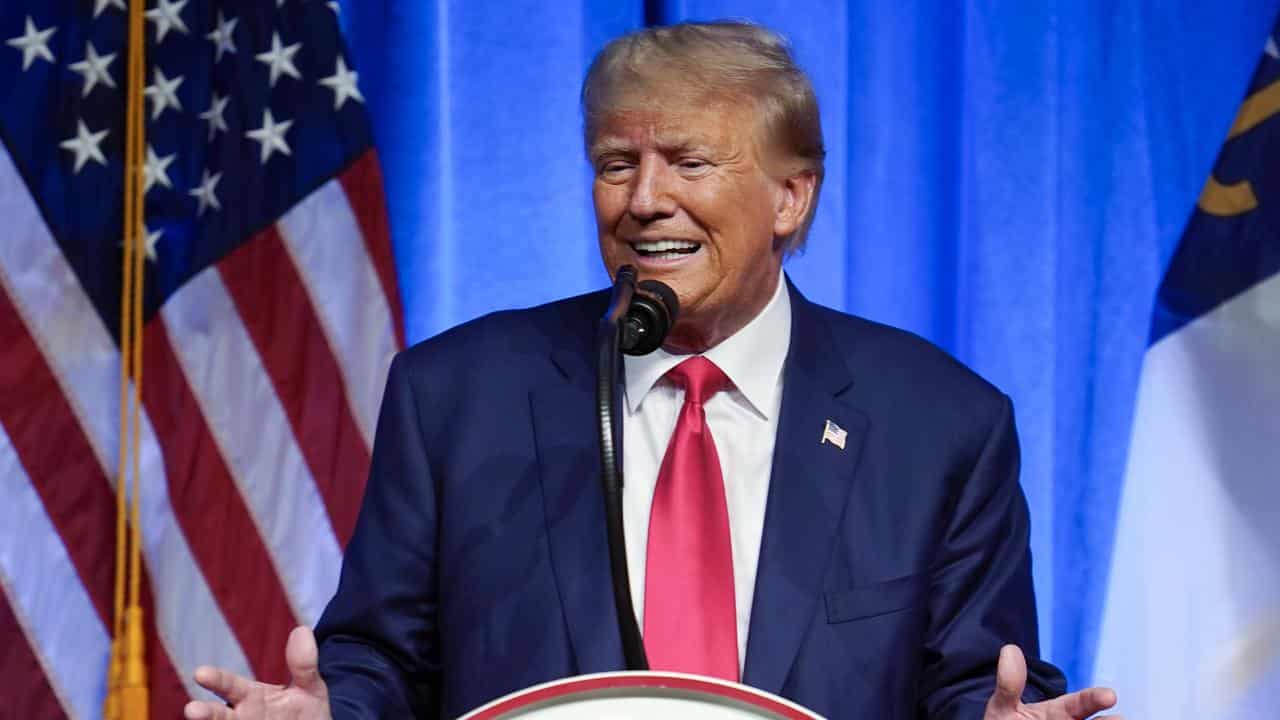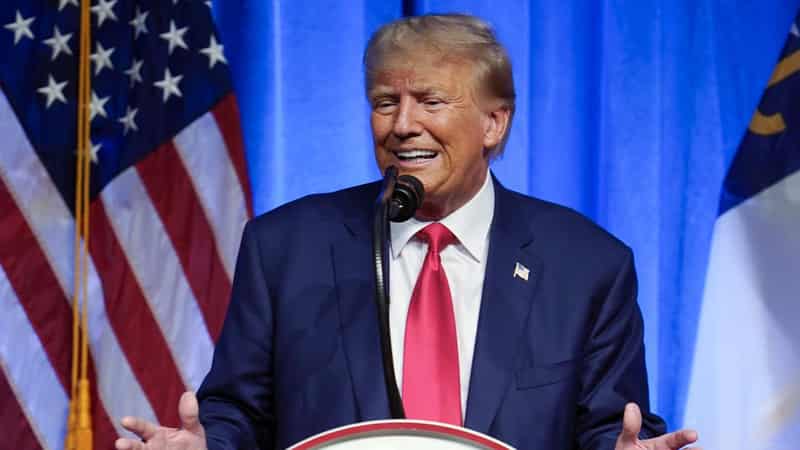
As former US president Donald Trump prepares for a momentous court appearance on charges related to the hoarding of top-secret documents, Republican allies are amplifying, without evidence, claims he is the target of a political prosecution.
To press their case, Trump's backers are citing the Justice Department's decision in 2016 not to bring charges against former Secretary of State Hillary Clinton, his Democratic opponent in that year's presidential race, over her handling of classified information.
His supporters are also invoking a separate classified documents investigation concerning President Joe Biden to allege a two-tier system of justice that is punishing Trump, the undisputed early front-runner for the GOP's 2024 White House nomination, for conduct that Democrats have engaged in.
"Is there a different standard for a Democratic secretary of state versus a former Republican president?” said Florida Governor Ron DeSantis, a Trump primary rival.
“I think there needs to be one standard of justice in this country.”
But those arguments overlook abundant factual and legal differences - chiefly relating to intent, state of mind and deliberate acts of obstruction - that limit the value of any such comparisons.
Clinton relied on a private email system for the sake of convenience during her time as the Obama administration's top diplomat.
That decision came back to haunt her when, in 2015, the intelligence agencies' internal watchdog alerted the FBI to the presence of potentially hundreds of emails containing classified information.
FBI investigators would ultimately conclude Clinton sent and received emails containing classified information on that unclassified system, including information classified at the top-secret level.
Of the roughly 30,000 emails turned over by Clinton's representatives, the FBI has said, 110 emails in 52 email chains were found to have classified information, including some at the top-secret level.
After a roughly yearlong inquiry, the FBI closed out the investigation in July 2016, finding that Clinton did not intend to break the law.
The bureau reopened the inquiry months later, 11 days before the presidential election, after discovering a new batch of emails. After reviewing those communications, the FBI again opted against recommending charges.
The indictment filed by Justice Department special counsel Jack Smith alleges that when Trump left the White House after his term ended in January 2021, he took hundreds of classified documents with him to his Florida estate, Mar-a-Lago - and then repeatedly impeded efforts by the government he once oversaw to get the records back.
The material Trump retained, prosecutors say, related to American nuclear programs, weapons and defence capabilities of the United States and foreign countries and potential vulnerabilities to an attack - information that, if exposed, could jeopardise the safety of the military and human sources.
Beyond just the hoarding of documents - in locations including a bathroom, ballroom, shower and his bedroom - the Justice Department says Trump showed highly sensitive material to visitors without security clearances and obstructed the FBI by, among other things, directing a personal aide who was charged alongside him to move boxes around Mar-a-Lago to conceal them from investigators.
Though Trump and his allies have claimed he could do with the documents as he pleased under the Presidential Records Act, the indictment makes short shrift of that argument and does not once reference that statute.
All told, the indictment includes 37 felony counts against Trump, most under an Espionage Act statute pertaining to the wilful retention of national defence information.
A lot, but two important differences are in wilfulness and obstruction.
In an otherwise harshly critical assessment in which he condemned Clinton's email practices as “extremely careless,” then-FBI director James Comey announced that investigators had found no clear evidence Clinton or her aides had intended to break laws governing classified information.
As a result, he said, “no reasonable prosecutor" would move forward with a case.
The relevant Espionage Act cases brought by the Justice Department over the past century, Comey said, all involved factors including efforts to obstruct justice, wllful mishandling of classified documents and indications of disloyalty to the US.
None of those factors existed in the Clinton investigation, he said.
That's in contrast to the allegations against Trump, who prosecutors say was involved in the packing of boxes to go to Mar-a-Lago and then actively took steps to conceal classified documents from investigators.









